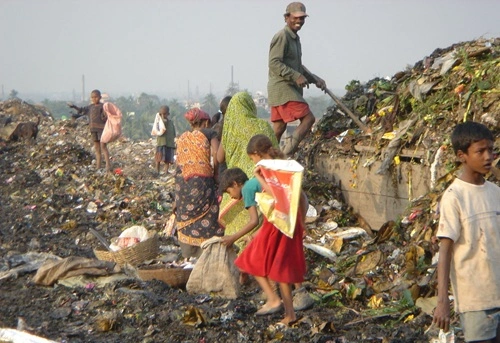Manual Scavenging refers to the practice of manual cleaning of unsanitary latrines, open drains, sewers and septic tanks. In this practice, the workers employ brooms and tin plates to put human excreta in baskets, which are then disposed off. Manual scavenging is considered an inhuman task and countries like India, Bangladesh and Pakistan have been struggling with this issue for a long time.

Legal Provisions against Manual Scavenging in India
Manual Scavenging is banned in India since 1993 when the Employment of Manual Scavengers and Construction of Dry Latrines (Prohibition) Act was passed by the Indian parliament.
This act was strengthened by the enactment of Prohibition of Employment as Manual Scavengers and their Rehabilitation Act, 2013. This particular law prohibits the employment of anyone as a manual scavenger, along with the construction and maintenance of dry latrines which require manual scavenging. Violations are punishable with up to 2 years of imprisonment or fines or both. Furthermore, the law provides for the rehabilitation of manual scavengers, including identification and survey, followed by benefits like education, training and economic assistance.
Court Rulings against Manual Scavenging
In 2014 Safakaramchari Andolan vs Union of India, the Supreme Court of India observed that manual scavenging violated various provisions of Articles 17 and 21 of the Constitution of India. The court said that the 1993 prohibition law failed to address the problem of manual scavenging, but the 2013 law provided a stronger legal framework against manual scavenging. Supreme Court also directed the state governments and municipal bodies to eradicate manual scavenging and take punitive action against offenders. Furthermore, the apex court ordered the authorities to identify the families of those individuals who had died during the process of manual scavenging since 1993 and provide a compensation of Rs. 10 lakhs to each family.
In 2023 Balram Singh vs Union of India, the Supreme Court of India expressed concerns over persistent violations of the 2013 Act, noting that manual scavenging was rampant across the country. The court directed the union and state governments to strictly enforce the 2013 Act, including a nationwide survey to identify manual scavengers, and mandated the reconstitution of state and district-level monitoring committees. Supreme Court also issued multiple other directions, such as phasing out manual scavenging in a time-bound manner, establishment of a transparent mechanism to report sewer deaths and pin accountability for the same, Rs. 10 lakhs compensation per sewer death and replacing manual scavenging with mechanised methods.


